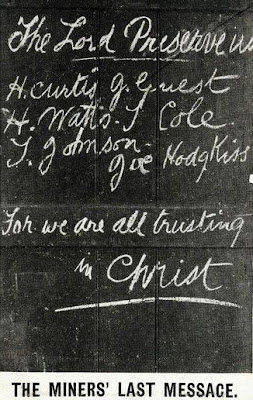Max Beerbohm describes in a 1910 essay his pleasure in finding on a station bookstall a book entitled
How Shall I Word It? and sub-entitled
A Complete Letter Writer for Men and Women:
“I had never read one of these manuals, but had often heard that there was a great and constant demand for them. So I demanded this one. It is no great fun in itself. The writer is no fool. He has evidently a natural talent for writing letters. His style is, for the most part, discreet and easy. If you were
a Young man writing to Father of Girl he wishes to Marry or
Thanking Fiancée for Present or
Reproaching Fiancée for being a Flirt, or if you were
a Mother replying to Undesirable Invitation for her Child, or indeed if you were in any other one of the crises which this book is designed to alleviate, you might copy out and post the specially-provided letter without making yourself ridiculous in the eyes of its receiver—unless, of course, he or she also possessed a copy of the book.”
But Beerbohm notes that “the author's style of letter-writing is informed as much by a desire to give his public what it needs, and will pay for, as by his own beautiful nature; and in the course of all the letters that he dictates you will find not one harsh word, not one ignoble thought or unkind insinuation. In all of them—though so many are for the use of persons placed in the most trying circumstances, and some of them are for persons writhing under a sense of intolerable injury—sweetness and light do ever reign.”
So he suggests to the author that he should sprinkle his next edition with a few examples of letters that make their point in a less kindly and more effective way:
LETTER FROM POOR MAN TO OBTAIN MONEY FROM RICH ONE.[The English law is particularly hard on what is called blackmail. It is therefore essential that the applicant should write nothing that might afterwards be twisted to incriminate him.] Dear Sir
To-day, as I was turning out a drawer in my attic, I came across a letter which by a curious chance fell into my hands some years ago, and which, in the stress of grave pecuniary embarrassment, had escaped my memory. It is a letter written by yourself to a lady, and the date shows it to have been written shortly after your marriage. It is of a confidential nature, and might, I fear, if it fell into the wrong hands, be cruelly misconstrued. I would wish you to have the satisfaction of destroying it in person. At first I thought of sending it on to you by post. But I know how happy you are in your domestic life; and probably your wife and you, in your perfect mutual trust, are in the habit of opening each other's letters. Therefore, to avoid risk, I would prefer to hand the document to you personally. I will not ask you to come to my attic, where I could not offer you such hospitality as is due to a man of your wealth and position. You will be so good as to meet me at 3.0 A.M. (sharp) to-morrow (Thursday) beside the tenth lamp-post to the left on the Surrey side of Waterloo Bridge; at which hour and place we shall not be disturbed. I am, dear Sir,
Yours respectfully,
JAMES GRIDGE.
LETTER TO MEMBER OF PARLIAMENT UNSEATED AT GENERAL ELECTION.
Dear Mr Pobsby-Burford,
Though I am myself an ardent Tory, I cannot but rejoice in the crushing defeat you have just suffered in West Odgetown. There are moments when political conviction is overborne by personal sentiment; and this is one of them.
The great bulk of the newspaper-reading public will be puzzled by your extinction in the midst of our party's triumph. But then, the great mass of the newspaper-reading public has not met you. I have. You will probably not remember me. You are the sort of man who would not remember anybody who might not be of some definite use to him. Such, at least, was one of the impressions you made on me when I met you last summer at a dinner given by our friends the Pelhams. Among the other things in you that struck me were the blatant pomposity of your manner, your appalling flow of cheap platitudes, and your hoggish lack of ideas. It is such men as you that lower the tone of public life. And I am sure that in writing to you thus I am but expressing what is felt, without distinction of party, by all who sat with you in the late Parliament.
The one person in whose behalf I regret your withdrawal into private life is your wife, whom I had the pleasure of taking in to the aforesaid dinner. It was evident to me that she was a woman whose spirit was well-nigh broken by her conjunction with you. Such remnants of cheerfulness as were in her I attributed to the Parliamentary duties which kept you out of her sight for so very many hours daily. I do not like to think of the fate to which the free and independent electors of West Odgetown have just condemned her. Only, remember this: chattel of yours though she is, and timid and humble, she despises you in her heart.
I am, dear Mr. Pobsby-Burford,
Yours very truly,
HAROLD THISTLAKE.
LETTER IN ACKNOWLEDGEMENT OF WEDDING PRESENT.
Dear Lady Amblesham,
Who gives quickly, says the old proverb, gives twice. For this reason I have purposely delayed writing to you, lest I should appear to thank you more than once for the small, cheap, hideous present you sent me on the occasion of my recent wedding. Were you a poor woman, that little bowl of ill-imitated Dresden china would convict you of tastelessness merely; were you a blind woman, of nothing but an odious parsimony. As you have normal eyesight and more than normal wealth, your gift to me proclaims you at once a Philistine and a miser (or rather did so proclaim you until, less than ten seconds after I had unpacked it from its wrappings of tissue paper, I took it to the open window and had the satisfaction of seeing it shattered to atoms on the pavement). But stay! I perceive a possible flaw in my argument. Perhaps you were guided in your choice by a definite wish to insult me. I am sure, on reflection, that this was so. I shall not forget.
Yours, etc.,
CYNTHIA BEAUMARSH.
PS. My husband asks me to tell you to warn Lord Amblesham to keep out of his way or to assume some disguise so complete that he will not be recognised by him and horsewhipped.
[You can read the full version of this essay and others HERE, enjoying the peerless elegance and clarity of all Beerbohm's prose.]
 Yesterday my wife's nephew died of cancer, aged 41.
Yesterday my wife's nephew died of cancer, aged 41.


 January 1934: From DW in Berlin to Reginald Braad in Gordon Street, London: I send you this without comment. Don't show it to Derek it might encourage him.
January 1934: From DW in Berlin to Reginald Braad in Gordon Street, London: I send you this without comment. Don't show it to Derek it might encourage him.






 September 1922: D from Harrogate to Miss Bowling in Hutton le Hole: We have called to see Miss Bellamys. They have a nice house & Dr Bellamy has just been nice and invited us out on Friday... Es gibt etwas unterschied zwischen Ellie and Miss Bellamy but I suppose they'll get on all right. I shall come early on Saturday it gets so busy later - so if you've asked a tennis crowd I shall be back in time.
September 1922: D from Harrogate to Miss Bowling in Hutton le Hole: We have called to see Miss Bellamys. They have a nice house & Dr Bellamy has just been nice and invited us out on Friday... Es gibt etwas unterschied zwischen Ellie and Miss Bellamy but I suppose they'll get on all right. I shall come early on Saturday it gets so busy later - so if you've asked a tennis crowd I shall be back in time.




 As Member Number 8158 of the 13,580 members (in 66 countries) of the Cloud Appreciation Society I note that the Society's current newsletter features this as Cloud of the Month for October; there is a better picture of it
As Member Number 8158 of the 13,580 members (in 66 countries) of the Cloud Appreciation Society I note that the Society's current newsletter features this as Cloud of the Month for October; there is a better picture of it 




